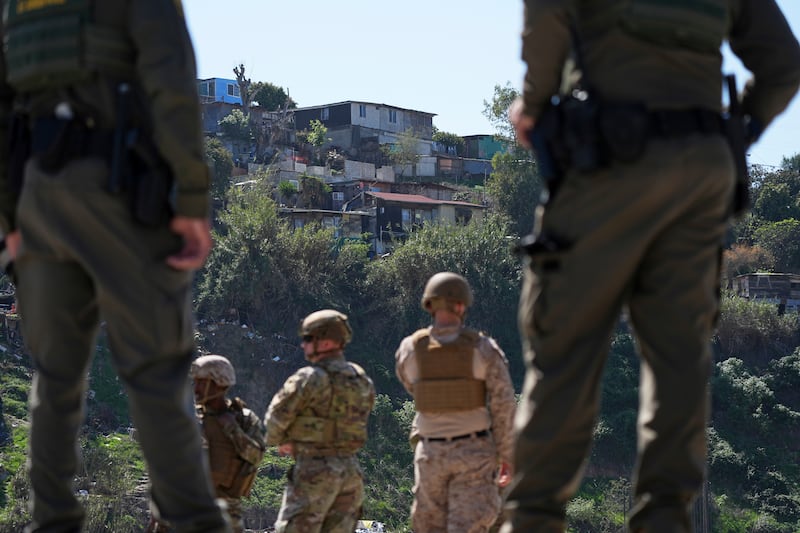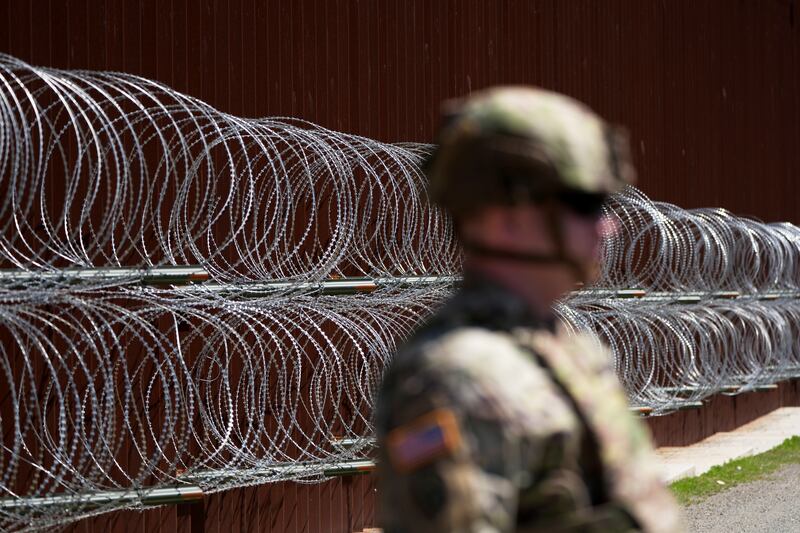The U.S. Customs and Border Protection issued preliminary numbers this week that indicate the southern border is the most secure it’s been in modern history.
While President Joe Biden was in office, the border recorded an average of 155,000 crossings by undocumented migrants. Under President Donald Trump, the number hovered a little over 7,100 in March, 1,146 less than in February.
Arrests also dropped from the previous administration’s daily average encounter of 5,100 to about 230 per day, according to the CBP’s latest statement. The federal agency will release finalized numbers for March in the coming days.
“Under the leadership of President Trump and Secretary (Kristi) Noem, the administration has taken bold, decisive action to restore control at the border. Border Patrol agents are empowered like never before to shut down unlawful entry and protect American lives,” said Pete Flores, the acting commissioner at CBP.
“The message is clear: the border is closed to illegal crossings, and for those still willing to test our resolve, know this — you will be prosecuted, and you will be deported."
The Trump White House carried out a wide-ranging crackdown on illegal immigration by sending military troops to the southern border, and by increasing arrests and deportations. Refugees from Cuba, Haiti, Nicaragua and Venezuela had their status revoked while the U.S. refugee resettlement program was paused.
“President Trump’s leadership continues to break records!” said U.S. Border Czar Tom Homan in a post on X.
“I started as a Border Patrol Agent in 1984, which was 41 years ago. I cannot recall a single month since then that the numbers have been that low,” he said.
White House press secretary Karoline Leavitt on Tuesday praised the low number of southwest border crossings in March.
“Thanks to President Trump’s leadership, border patrol agents are now back to doing the jobs they signed up for: securing the border, rather than serving as travel agents for illegal aliens,” she said.
All the border states are feeling the early impact of these policies.

California
The White House amplified a recent Los Angeles Times report that states, “migrant crossings have slowed to a near halt,” prompting nonprofit migrant aid groups to dismantle their makeshift camps by the border.
“Border Patrol agents in the San Diego sector are now making about 30 to 40 arrests per day,” the report said. “That’s down from more than 1,200 per day during the height of migrant arrivals to the region in April.”
Arizona
Gov. Katie Hobbs told KTAR News that she thinks the numbers are “good news.”
“What it means for border security is that our federal agents who work really hard at the border every day have now the ability to focus on the criminal elements and stopping the fentanyl and the traffickers from coming into the country,” she said.
But Hobbs indicated that Congress still needs to pass a “comprehensive” border bill.
“This is something that’s been kicked down the road for decades. … If our immigration policy can change at the drop of a hat, there’s not consistency, there’s not certainty,” she said. “And having comprehensive change would provide that certainty. We’ve needed it for a long time.”
Texas
Unlike the Western border states, Texas funded its own border security initiative, Operation Lone Star. The state will continue spending money on this program, per the Austin American-Statesman.
Gov. Greg Abbott asked the federal government to reimburse the $11.1 billion his state spent on border fencing, construction of the border wall and personnel costs. More recently, his office suggested they see an ally in the Trump White House and displayed confidence in the administration’s dedication to securing the border.
New Mexico
According to El Paso Times, the Trump White House is considering establishing a militarized buffer zone at the U.S.-Mexico border in New Mexico. Active duty troops along this section of the border will be able to catch migrants for “trespassing” through a military zone.
This would give the federal government more flexibility over border control compared to enforcement through civilian law officials.


